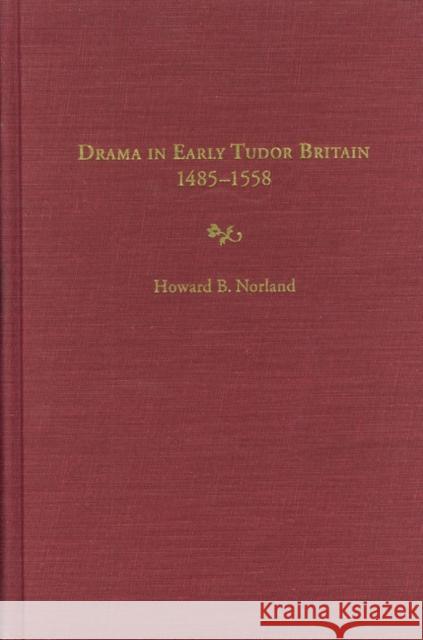Drama in Early Tudor Britain, 1485-1558 » książka
Drama in Early Tudor Britain, 1485-1558
ISBN-13: 9780803233379 / Angielski / Twarda / 1995 / 394 str.
A time of great changes after nearly a century of foreign wars and civil strife, the Tudor era witnessed a significant transformation of dramatic art. Medieval traditions were modified by the forces of humanism and the Reformation, and a renewed interest in classical models inspired experimentation.Howard B. Norland examines Tudor plays performed between 1485 and 1558, a time when drama reached beyond local, popular, and religious contexts to treat more varied and more secular concerns, culminating in the emergence of comedy and tragedy as major genres. The theater also imported dramas from the Continent, adapting them to English tastes.After establishing the popular dramatic traditions of fifteenth-century Britain, Norland discusses the critical interpretation of the Latin plays of Terence studied in the schools and the views of influential authors such as Erasmus, Vives, and More about what drama should be and do. The heart of the book is its in-depth analyses of individual plays. Norland examines the secularization of the morality play in Skelton s Magnificence, Bale s King John, Respublica, and Redford s Wit and Science and he traces the changes in comic form from Medwall s Fulgens and Lucres through Calisto and Melebea and Johan Johan to Udall s Roister Doister and Gammer Gurton s Needle. The final section examines the first tragedies written in England: Watson s Absolom, Christopherson s Jephthah, and Grimald s Archipropheta."











